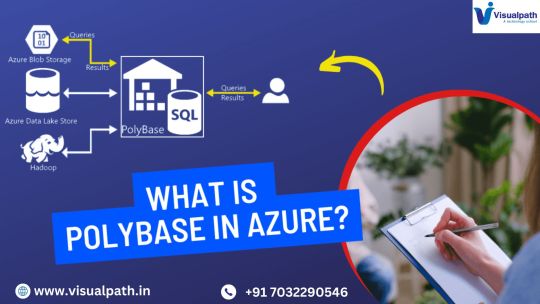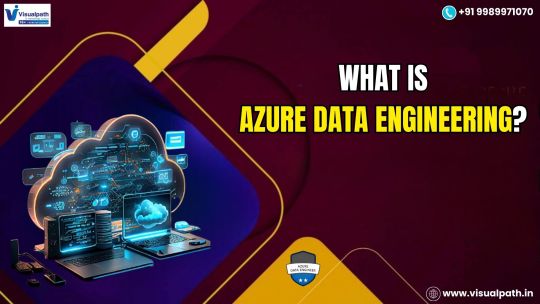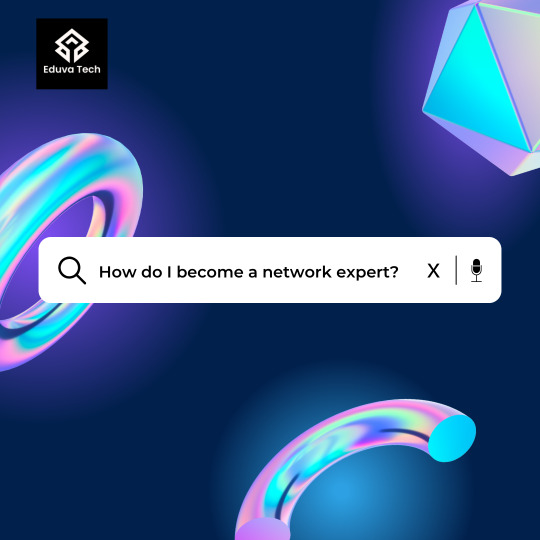#Microsoft Azure Training Course Online
Explore tagged Tumblr posts
Text
Real-time Data Processing with Azure Stream Analytics
Introduction
The current fast-paced digital revolution demands organizations to handle occurrences in real-time. The processing of real-time data enables organizations to detect malicious financial activities and supervise sensor measurements and webpage user activities which enables quicker and more intelligent business choices.
Microsoft’s real-time analytics service Azure Stream Analytics operates specifically to analyze streaming data at high speed. The introduction explains Azure Stream Analytics system architecture together with its key features and shows how users can construct effortless real-time data pipelines.
What is Azure Stream Analytics?
Algorithmic real-time data-streaming functions exist as a complete serverless automation through Azure Stream Analytics. The system allows organizations to consume data from different platforms which they process and present visual data through straightforward SQL query protocols.
An Azure data service connector enables ASA to function as an intermediary which processes and connects streaming data to emerging dashboards as well as alarms and storage destinations. ASA facilitates processing speed and immediate response times to handle millions of IoT device messages as well as application transaction monitoring.
Core Components of Azure Stream Analytics
A Stream Analytics job typically involves three major components:
1. Input
Data can be ingested from one or more sources including:
Azure Event Hubs – for telemetry and event stream data
Azure IoT Hub – for IoT-based data ingestion
Azure Blob Storage – for batch or historical data
2. Query
The core of ASA is its SQL-like query engine. You can use the language to:
Filter, join, and aggregate streaming data
Apply time-window functions
Detect patterns or anomalies in motion
3. Output
The processed data can be routed to:
Azure SQL Database
Power BI (real-time dashboards)
Azure Data Lake Storage
Azure Cosmos DB
Blob Storage, and more
Example Use Case
Suppose an IoT system sends temperature readings from multiple devices every second. You can use ASA to calculate the average temperature per device every five minutes:

This simple query delivers aggregated metrics in real time, which can then be displayed on a dashboard or sent to a database for further analysis.
Key Features
Azure Stream Analytics offers several benefits:
Serverless architecture: No infrastructure to manage; Azure handles scaling and availability.
Real-time processing: Supports sub-second latency for streaming data.
Easy integration: Works seamlessly with other Azure services like Event Hubs, SQL Database, and Power BI.
SQL-like query language: Low learning curve for analysts and developers.
Built-in windowing functions: Supports tumbling, hopping, and sliding windows for time-based aggregations.
Custom functions: Extend queries with JavaScript or C# user-defined functions (UDFs).
Scalability and resilience: Can handle high-throughput streams and recovers automatically from failures.
Common Use Cases
Azure Stream Analytics supports real-time data solutions across multiple industries:
Retail: Track customer interactions in real time to deliver dynamic offers.
Finance: Detect anomalies in transactions for fraud prevention.
Manufacturing: Monitor sensor data for predictive maintenance.
Transportation: Analyze traffic patterns to optimize routing.
Healthcare: Monitor patient vitals and trigger alerts for abnormal readings.
Power BI Integration
The most effective connection between ASA and Power BI serves as a fundamental feature. Asustream Analytics lets users automatically send data which Power BI dashboards update in fast real-time. Operations teams with managers and analysts can maintain ongoing key metric observation through ASA since it allows immediate threshold breaches to trigger immediate action.
Best Practices
To get the most out of Azure Stream Analytics:
Use partitioned input sources like Event Hubs for better throughput.
Keep queries efficient by limiting complex joins and filtering early.
Avoid UDFs unless necessary; they can increase latency.
Use reference data for enriching live streams with static datasets.
Monitor job metrics using Azure Monitor and set alerts for failures or delays.
Prefer direct output integration over intermediate storage where possible to reduce delays.
Getting Started
Setting up a simple ASA job is easy:
Create a Stream Analytics job in the Azure portal.
Add inputs from Event Hub, IoT Hub, or Blob Storage.
Write your SQL-like query for transformation or aggregation.
Define your output—whether it’s Power BI, a database, or storage.
Start the job and monitor it from the portal.
Conclusion
Organizations at all scales use Azure Stream Analytics to gain processing power for real-time data at levels suitable for business operations. Azure Stream Analytics maintains its prime system development role due to its seamless integration of Azure services together with SQL-based declarative statements and its serverless architecture.
Stream Analytics as a part of Azure provides organizations the power to process ongoing data and perform real-time actions to increase operational intelligence which leads to enhanced customer satisfaction and improved market positioning.
#azure data engineer course#azure data engineer course online#azure data engineer online course#azure data engineer online training#azure data engineer training#azure data engineer training online#azure data engineering course#azure data engineering online training#best azure data engineer course#best azure data engineer training#best azure data engineering courses online#learn azure data engineering#microsoft azure data engineer training
0 notes
Text
Azure Data Engineer Course In Bangalore | Azure Data
PolyBase in Azure SQL Data Warehouse: A Comprehensive Guide
Introduction to PolyBase
PolyBase is a technology in Microsoft SQL Server and Azure Synapse Analytics (formerly Azure SQL Data Warehouse) that enables querying data stored in external sources using T-SQL. It eliminates the need for complex ETL processes by allowing seamless data integration between relational databases and big data sources such as Hadoop, Azure Blob Storage, and external databases.
PolyBase is particularly useful in Azure SQL Data Warehouse as it enables high-performance data virtualization, allowing users to query and import large datasets efficiently without moving data manually. This makes it an essential tool for organizations dealing with vast amounts of structured and unstructured data. Microsoft Azure Data Engineer

How PolyBase Works
PolyBase operates by creating external tables that act as a bridge between Azure SQL Data Warehouse and external storage. When a query is executed on an external table, PolyBase translates it into the necessary format and fetches the required data in real-time, significantly reducing data movement and enhancing query performance.
The key components of PolyBase include:
External Data Sources – Define the external system, such as Azure Blob Storage or another database.
File Format Objects – Specify the format of external data, such as CSV, Parquet, or ORC.
External Tables – Act as an interface between Azure SQL Data Warehouse and external data sources.
Data Movement Service (DMS) – Responsible for efficient data transfer during query execution. Azure Data Engineer Course
Benefits of PolyBase in Azure SQL Data Warehouse
Seamless Integration with Big Data – PolyBase enables querying data stored in Hadoop, Azure Data Lake, and Blob Storage without additional transformation.
High-Performance Data Loading – It supports parallel data ingestion, making it faster than traditional ETL pipelines.
Cost Efficiency – By reducing data movement, PolyBase minimizes the need for additional storage and processing costs.
Simplified Data Architecture – Users can analyze external data alongside structured warehouse data using a single SQL query.
Enhanced Analytics – Supports machine learning and AI-driven analytics by integrating with external data sources for a holistic view.
Using PolyBase in Azure SQL Data Warehouse
To use PolyBase effectively, follow these key steps:
Enable PolyBase – Ensure that PolyBase is activated in Azure SQL Data Warehouse, which is typically enabled by default in Azure Synapse Analytics.
Define an External Data Source – Specify the connection details for the external system, such as Azure Blob Storage or another database.
Specify the File Format – Define the format of the external data, such as CSV or Parquet, to ensure compatibility.
Create an External Table – Establish a connection between Azure SQL Data Warehouse and the external data source by defining an external table.
Query the External Table – Data can be queried seamlessly without requiring complex ETL processes once the external table is set up. Azure Data Engineer Training
Common Use Cases of PolyBase
Data Lake Integration: Enables organizations to query raw data stored in Azure Data Lake without additional data transformation.
Hybrid Data Solutions: Facilitates seamless data integration between on-premises and cloud-based storage systems.
ETL Offloading: Reduces reliance on traditional ETL tools by allowing direct data loading into Azure SQL Data Warehouse.
IoT Data Processing: Helps analyze large volumes of sensor-generated data stored in cloud storage.
Limitations of PolyBase
Despite its advantages, PolyBase has some limitations:
It does not support direct updates or deletions on external tables.
Certain data formats, such as JSON, require additional handling.
Performance may depend on network speed and the capabilities of the external data source. Azure Data Engineering Certification
Conclusion
PolyBase is a powerful Azure SQL Data Warehouse feature that simplifies data integration, reduces data movement, and enhances query performance. By enabling direct querying of external data sources, PolyBase helps organizations optimize their big data analytics workflows without costly and complex ETL processes. For businesses leveraging Azure Synapse Analytics, mastering PolyBase can lead to better data-driven decision-making and operational efficiency.
Implementing PolyBase effectively requires understanding its components, best practices, and limitations, making it a valuable tool for modern cloud-based data engineering and analytics solutions.
For More Information about Azure Data Engineer Online Training
Contact Call/WhatsApp: +91 7032290546
Visit: https://www.visualpath.in/online-azure-data-engineer-course.html
#Azure Data Engineer Course#Azure Data Engineering Certification#Azure Data Engineer Training In Hyderabad#Azure Data Engineer Training#Azure Data Engineer Training Online#Azure Data Engineer Course Online#Azure Data Engineer Online Training#Microsoft Azure Data Engineer#Azure Data Engineer Course In Bangalore#Azure Data Engineer Course In Chennai#Azure Data Engineer Training In Bangalore#Azure Data Engineer Course In Ameerpet
0 notes
Text

VisualPath in Hyderabad offers expert-led Azure AI Engineer Training to help you earn the AI-102 Certification. Our Azure AI-102 Online Course covers SQL Server, Data Science, Microsoft Azure, Generative AI, and Artificial Intelligence. With hands-on learning and real-world projects. Call +91-9989971070 to schedule your free demo session today
WhatsApp: https://www.whatsapp.com/catalog/919989971070/
Visit Blog: https://visualpathblogs.com/
Visit: https://www.visualpath.in/online-ai-102-certification.html
#Ai 102 Certification#Azure AI Engineer Certification#Azure AI Engineer Training#Azure AI-102 Course in Hyderabad#Azure AI Engineer Online Training#Microsoft Azure AI Engineer Training#AI-102 Microsoft Azure AI Training
0 notes
Text

VisualPath provides a premium Azure Data Engineer Course with expert-led sessions tailored for global learners. Our Azure Data Engineering Certification program features daily recordings, presentations, and hands-on training for an in-depth experience. Enroll now for a free demo session and elevate your skills. Contact us at +91-9989971070 for more details
WhatsApp: https://www.whatsapp.com/catalog/919989971070/
Visit Blog: https://visualpathblogs.com/Visit: https://www.visualpath.in/online-azure-data-engineer-course.html
#Azure Data Engineer Course#Azure Data Engineering Certification#Azure Data Engineer Training In Hyderabad#Azure Data Engineer Training#Azure Data Engineer Training Online#Azure Data Engineer Course Online#Azure Data Engineer Online Training#Microsoft Azure Data Engineer
0 notes
Text
Python Courses in Ahmedabad with Weekend & Part-Time Options for Working Experts
In a fast-growing tech world, learning Python is necessary for working professionals who want to be trained without sacrificing their primary job duties. Thus, flexible study options are available in Ahmedabad for those who wish to learn Python over the weekend or part-time.
Flexible education options are tailored to fit specific time schedules for full-time professionals and the many commitments they must manage personally. Whether you are looking to get into a career in technology or just attempting to upgrade your skills, weekend and part-time courses in Python can provide just the flexible direction your career needs without sacrificing time management.
Well-structured modules, practical projects, and high-industry relevance help learners to gradually improve their programming skills while not having to disrupt their weekly routines.
Learn Basic Skills from Python Courses in Ahmedabad
Weekend and Part-Time Python Courses in Ahmedabad would be suitable for beginners who are interested in establishing a strong programming background. This straightforward course encompasses the significant concepts of variables, loops, functions, and OOP. An industry-oriented teaching approach would enable the students to implement knowledge in practice and develop applications of a real-time nature.
Get Certified by Enrolling in Python Enhancement Training Within Ahmedabad
The individual professional would now be easily trained through structured Python Training in Ahmedabad while certainly granting it more than an advanced exposure to rigorous topics, such as data analysis, API connection, and even foundational frameworks. This enables the already-presented knowledge of Python to students and professionals who want to improve their problem-solving and development skills.
Obtain Real-world Experience through a Python Internship in Ahmedabad
So, collecting solid credentials might be a good idea for registering for a Python Internship in Ahmedabad. Internships take someone through the project-based training model, imitating work conditions. There, trainees apply what they have learned in the classroom to real-life problems, thus gaining confidence and preparation for the industry.
Why Opt for Weekend and Part-Time Learning?
Weekend and part-time courses are the best options for one who is an employee. It gives the possibility to take some commitment time off so that a certain amount of time may be used to obtain any new skill while still keeping a part of the work commitment. Such learning does not have a time-honoured, rigidly scheduled learning process for a student.
The weekend and part-time, flexible Python course is a brilliant opportunity for professionals in Ahmedabad who are seeking to enhance their skills without the interruption of their careers. Whether you wish to begin from scratch or are keen to improve your programming skills, this type of course offers the most essential practical knowledge and support in the modern tech-driven world. Step forward in your career by availing of training from experts; visit Highsky IT Solutions and enrol today.
#linux certification ahmedabad#red hat certification ahmedabad#linux online courses in ahmedabad#data science training ahmedabad#rhce rhcsa training ahmedabad#aws security training ahmedabad#docker training ahmedabad#red hat training ahmedabad#microsoft azure cloud certification#python courses in ahmedabad
0 notes
Text
Azure Data Engineer Training Online in Hyderabad | Azure Data Engineer Training
How to Connect to Key Vaults from Azure Data Factory?
Introduction Azure Data Engineer Online Training Azure Key Vault is a secure cloud service that provides the ability to safeguard cryptographic keys and secrets. These secrets could be tokens, passwords, certificates, or API keys. Integrating Key Vault with Azure Data Factory (ADF) allows you to securely manage and access sensitive data without exposing it directly in your pipelines. This article explains how to connect to Key Vaults from Azure Data Factory and securely manage your credentials. Azure Data Engineer Training

Setting Up Azure Key Vault and Azure Data Factory Integration
Create a Key Vault and Store Secrets
Create Key Vault: Navigate to the Azure portal and create a new Key Vault instance.
Store Secrets: Store the secrets (e.g., database connection strings, API keys) in the Key Vault by defining name-value pairs.
Set Access Policies
Assign Permissions: In the Key Vault, go to “Access policies” and select the permissions (Get, List) necessary for Data Factory to retrieve secrets.
Select Principal: Add Azure Data Factory as the principal in the access policy, allowing the pipeline to access the secrets securely.
Connecting Azure Data Factory to Key Vault
Use Linked Services
Create Linked Service for Key Vault: Go to the Manage section in Azure Data Factory, then select “Linked Services” and create a new one for Key Vault.
Configure Linked Service: Input the details such as subscription, Key Vault name, and grant access through a Managed Identity or Service Principal.
Access Secrets in Pipelines Once your Key Vault is linked to Azure Data Factory, you can retrieve secrets within your pipelines without hardcoding sensitive information. This can be done by referencing the secrets dynamically in pipeline activities.
Dynamic Secret Reference: Use expressions to access secrets from the linked Key Vault, such as referencing connection strings or API keys during pipeline execution.
Benefits of Using Key Vault with Azure Data Factory
Enhanced Security By centralizing secret management in Key Vault, you reduce the risk of data leaks and ensure secure handling of credentials in Azure Data Factory pipelines.
Simplified Management Key Vault simplifies credential management by eliminating the need to embed secrets directly in the pipeline. When secrets are updated in the Key Vault, no changes are required in the pipeline code.
Auditing and Compliance Key Vault provides built-in logging and monitoring for tracking access to secrets, helping you maintain compliance and better governance.
Conclusion Connecting Azure Key Vault to Azure Data Factory enhances the security and management of sensitive data in pipelines. With simple integration steps, you can ensure that secrets are stored and accessed securely, improving overall compliance and governance across your data solutions.
Visualpath is the Leading and Best Software Online Training Institute in Hyderabad. Avail complete Azure Data Engineer Training Online in Hyderabad Worldwide You will get the best course at an affordable cost.
Attend Free Demo
Call on – +91-9989971070
Visit blog: https://visualpathblogs.com/
WhatsApp: https://www.whatsapp.com/catalog/919989971070
Visit : https://visualpath.in/azure-data-engineer-online-training.html
#Azure Data Engineer Training in Hyderabad#Azure Data Engineer Online Training#Microsoft Azure Data Engineer Training#Azure Data Engineer Training Online in Hyderabad#Azure Data Engineer Training#Azure Data Engineer Course in Hyderabad#Azure Data Engineering Training in Ameerpet#Azure Data Engineer Training Institute in Hyderabad#MS Azure Data Engineer Online Training#Azure Data Engineering Certification Course
0 notes
Text
#azure data engineer#azure course#azure training#azure online training#azure certification#microsoft azure certification#azure certification path#azure fundamentals#azure devops certification#azure cloud certification#microsoft azure fundamentals
1 note
·
View note
Text
Azure Data Engineering Course Hyderabad
Naresh i Technologies
✍Enroll Now: https://bit.ly/3QhLDqQ
👉Attend a Free Demo On Azure Data Engineering with Data Factory by Mr. Gareth.
📅Demo on: 1st May @ 9:00 PM (IST)

Azure Data Engineering with Azure Data Factory refers to the process of designing, developing, deploying, and managing data pipelines and workflows on the Microsoft Azure cloud platform using Azure Data Factory (ADF). Azure Data Factory is a cloud-based data integration service that allows users to create, schedule, and orchestrate data pipelines to ingest, transform, and load data from various sources into Azure data storage and analytics services.
Key components and features of Azure Data Engineering with Azure Data Factory include:
Data Integration: Azure Data Factory enables seamless integration of data from diverse sources such as relational databases, cloud storage, on-premises systems, and software as a service (SaaS) applications. It provides built-in connectors for popular data sources and destinations, as well as support for custom connectors.
ETL (Extract, Transform, Load): Data engineers can use Azure Data Factory to build ETL pipelines for extracting data from source systems, applying transformations to clean, enrich, or aggregate the data, and loading it into target data stores or analytics platforms. ADF supports both code-free visual authoring and code-based development using languages like Azure Data Factory Markup Language (ARM) templates or Python.
Data Orchestration: With Azure Data Factory, users can orchestrate complex data workflows that involve multiple tasks, dependencies, and conditional logic. They can define and schedule the execution of data pipelines, monitor their progress, and handle errors and retries to ensure reliable data processing.
Integration with Azure Services: Azure Data Factory integrates seamlessly with other Azure services such as Azure Synapse Analytics (formerly Azure SQL Data Warehouse), Azure Databricks, Azure HDInsight, Azure Data Lake Storage, Azure SQL Database, and more. This integration allows users to build end-to-end data solutions that encompass data ingestion, storage, processing, and analytics.
Scalability and Performance: Azure Data Factory is designed to scale dynamically to handle large volumes of data and high-throughput workloads. It leverages Azure's infrastructure and services to provide scalable and reliable data processing capabilities, ensuring optimal performance for data engineering tasks.
Monitoring and Management: Azure Data Factory offers monitoring and management capabilities through built-in dashboards, logs, and alerts. Users can track the execution of data pipelines, monitor data quality, troubleshoot issues, and optimize performance using diagnostic tools and telemetry data.
Naresh i Technologies
#Microsoftazure#azuredataengineer#microsoft#azure#azureadmin#Online#training#Course#education#learning#software#students#dataengineer#datascience#datascientist#dataengineering#dataanalytics#dataanalysis#devops#deeplearning#bigdataanalytics#datasciencetraining#nareshit
0 notes
Text
Azure Data Engineering Certification Course
Azure Data Engineering Training: What Is Azure Data Engineering?

Introduction:
Azure Data Engineering Training has emerged as a critical skill set for professionals working with cloud-based data solutions. As organizations increasingly rely on cloud technologies for data management, an Azure Data Engineer becomes a key player in managing, transforming, and integrating data to drive decision-making and business intelligence. Azure Data Engineering refers to the process of designing and managing data systems on Microsoft’s Azure cloud platform, using a wide range of tools and services provided by Microsoft. This includes building, managing, and optimizing data pipelines, data storage solutions, and real-time analytics. For professionals aspiring to excel in this field, an Azure Data Engineer Course offers comprehensive knowledge and skills, paving the way for an Azure Data Engineering Certification.
What Does an Azure Data Engineer Do?
An Azure Data Engineer works with various data management and analytics tools to design, implement, and maintain data solutions. They are responsible for ensuring that data is accurate, accessible, and scalable. Their work typically includes:
Building Data Pipelines: Azure Data Engineers design and implement data pipelines using Azure tools like Azure Data Factory, which automate the movement and transformation of data from various sources into data storage or data warehouses.
Data Storage Management: Azure provides scalable storage solutions such as Azure Data Lake, Azure Blob Storage, and Azure SQL Database. An Azure Data Engineer ensures the proper storage architecture is in place, optimizing for performance, security, and compliance.
Data Transformation: Azure Data Engineers use tools like Azure Data bricks, Azure Synapse Analytics, and SQL to transform raw data into meaningful, actionable insights. This process includes cleaning, enriching, and aggregating data to create datasets that can be analysed for reporting or predictive analytics.
Integration with Data Solutions: They integrate various data sources, including on-premises databases, cloud-based data stores, and real-time streaming data, into a unified platform for data processing and analytics.
Automation and Monitoring: Data engineers automate repetitive tasks, such as data loading and processing, and implement monitoring solutions to ensure the pipelines are running smoothly.
Data Security and Compliance: Ensuring that data is securely stored, accessed, and processed is a major responsibility for an Azure Data Engineer. Azure offers various security features like Azure Active Directory, encryption, and role-based access controls, all of which data engineers configure and manage.
Tools and Technologies in Azure Data Engineering
A Microsoft Azure Data Engineer uses a variety of tools provided by Azure to complete their tasks. Some key technologies in Azure Data Engineering include:
Azure Data Factory: A cloud-based data integration service that allows you to create, schedule, and orchestrate data pipelines. Azure Data Factory connects to various data sources, integrates them, and moves data seamlessly across systems.
Azure Data bricks: A collaborative platform for data engineers, data scientists, and analysts to work together on big data analytics and machine learning. It integrates with Apache Spark and provides a unified environment for data engineering and data science tasks.
Azure Synapse Analytics: This is a cloud-based analytical data warehouse solution that brings together big data and data warehousing. It allows Azure Data Engineers to integrate data from various sources, run complex queries, and gain insights into their data.
Azure Blob Storage & Azure Data Lake Storage: These are scalable storage solutions for unstructured data like images, videos, and logs. Data engineers use these storage solutions to manage large volumes of data, ensuring that it is secure and easily accessible for processing.
Azure SQL Database: A relational database service that is highly scalable and provides tools for managing and querying structured data. Azure Data Engineers often use this service to store and manage transactional data.
Azure Stream Analytics: A real-time data stream processing service that allows data engineers to analyse and process real-time data streams and integrate them with Azure analytics tools.
Why Choose an Azure Data Engineering Career?
The demand for skilled Azure Data Engineers has skyrocketed in recent years as organizations have realized the importance of leveraging data for business intelligence, decision-making, and competitive advantage. Professionals who earn an Azure Data Engineering Certification demonstrate their expertise in designing and managing complex data solutions on Azure, a skill set that is highly valued across industries such as finance, healthcare, e-commerce, and technology.
The growth of data and the increasing reliance on cloud computing means that Azure Data Engineers are needed more than ever. As businesses continue to migrate to the cloud, Microsoft Azure Data Engineer roles are becoming essential to the success of data-driven enterprises. These professionals help organizations streamline their data processes, reduce costs, and unlock the full potential of their data.
Benefits of Azure Data Engineering Certification
Industry Recognition: Earning an Azure Data Engineering Certification from Microsoft provides global recognition of your skills and expertise in managing data on the Azure platform. This certification is recognized by companies worldwide and can help you stand out in a competitive job market.
Increased Job Opportunities: With businesses continuing to shift their data infrastructure to the cloud, certified Azure Data Engineers are in high demand. This certification opens up a wide range of job opportunities, from entry-level positions to advanced engineering roles.
Improved Job Performance: Completing an Azure Data Engineer Course not only teaches you the theoretical aspects of Azure Data Engineering but also gives you hands-on experience with the tools and technologies you will be using daily. This makes you more effective and efficient on the job.
Higher Salary Potential: As a certified Microsoft Azure Data Engineer, you can expect higher earning potential. Data engineers with Azure expertise often command competitive salaries, reflecting the importance of their role in driving data innovation.
Staying Current with Technology: Microsoft Azure is continually evolving, with new features and tools being introduced regularly. The certification process ensures that you are up-to-date with the latest developments in Azure Data Engineering.
Azure Data Engineer Training Path
To start a career as an Azure Data Engineer, professionals typically begin by enrolling in an Azure Data Engineer Training program. These training courses are designed to provide both theoretical and practical knowledge of Azure data services. The Azure Data Engineer Course usually covers topics such as:
Core data concepts and analytics
Data storage and management in Azure
Data processing using Azure Data bricks and Azure Synapse Analytics
Building and deploying data pipelines with Azure Data Factory
Monitoring and managing data solutions on Azure
Security and compliance practices in Azure Data Engineering
Once you complete the training, you can pursue the Azure Data Engineering Certification by taking the Microsoft certification exam, which tests your skills in designing and implementing data solutions on Azure.
Advanced Skills for Azure Data Engineers
To excel as an Azure Data Engineer, professionals must cultivate advanced technical and problem-solving skills. These skills not only make them proficient in their day-to-day roles but also enable them to handle complex projects and large-scale data systems.
Conclusion
The role of an Azure Data Engineer is pivotal in today’s data-driven world. With the increasing reliance on cloud computing and the massive growth in data, organizations need skilled professionals who can design, implement, and manage data systems on Azure. By enrolling in an Azure Data Engineer Course and earning the Azure Data Engineering Certification, professionals can gain the expertise needed to build scalable and efficient data solutions on Microsoft’s cloud platform.
The demand for Microsoft Azure Data Engineer professionals is growing rapidly, offering a wealth of job opportunities and competitive salaries. With hands-on experience in the Azure ecosystem, data engineers are equipped to address the challenges of modern data management and analytics. Whether you’re just starting your career or looking to advance your skills, Azure Data Engineer Training provides the foundation and expertise needed to succeed in this exciting field.
Visualpath is the Best Software Online Training Institute in Hyderabad. Avail complete Azure Data Engineering worldwide. You will get the best course at an affordable cost.
Attend Free Demo
Call on - +91-9989971070.
WhatsApp: https://www.whatsapp.com/catalog/919989971070/
Visit Blog: https://visualpathblogs.com/
Visit: https://www.visualpath.in/online-azure-data-engineer-course.html
#Azure Data Engineer Course#Azure Data Engineering Certification#Azure Data Engineer Training In Hyderabad#Azure Data Engineer Training#Azure Data Engineer Training Online#Azure Data Engineer Course Online#Azure Data Engineer Online Training#Microsoft Azure Data Engineer
0 notes
Text
Microsoft Fabric Course | Microsoft Fabric Training
Key Benefits of Learning Microsoft Fabric Course for Cloud Data Analytics
Microsoft Fabric- The rapid evolution of cloud technologies has reshaped the way organizations manage, analyze, and derive insights from their data. At the forefront of this revolution is Microsoft Fabric, a unified platform that streamlines data analytics, AI integration, and collaboration. A comprehensive Microsoft Fabric Course equips professionals with the skills necessary to harness the platform's potential, making it a vital asset for those seeking to thrive in the competitive landscape of cloud data analytics.

What is Microsoft Fabric?
Microsoft Fabric is a cutting-edge data analytics platform designed to simplify data workflows, enhance scalability, and enable seamless integration with AI tools. It combines data integration, processing, and visualization, ensuring a unified approach to handling massive data sets. Professionals who pursue Microsoft Fabric Training gain expertise in advanced tools that are indispensable in industries like finance, healthcare, and e-commerce.
1. Streamlining Data Integration
One of the standout benefits of Microsoft Fabric Training in Hyderabad is learning how to streamline data integration. Microsoft Fabric supports various data sources, enabling seamless data ingestion and transformation. Professionals can integrate multiple data pipelines into a cohesive framework, reducing inefficiencies and enhancing productivity. This feature is particularly valuable for enterprises managing large-scale operations.
The Microsoft Fabric Online Training Course provides hands-on experience with data integration tools, empowering participants to automate workflows and create real-time dashboards. These skills are critical in enabling faster decision-making and improved organizational agility.
2. Enhanced Data Security and Governance
The management of sensitive data by businesses necessitates a strong emphasis on security and compliance. The Microsoft Fabric Course in Hyderabad emphasizes robust data governance features, ensuring that users understand how to implement security protocols and manage access controls effectively. This training is especially beneficial for organizations operating in regulated industries such as finance and healthcare.
Through Microsoft Fabric Training, participants learn to create audit trails, maintain data integrity, and adhere to global compliance standards, boosting trust and reliability across stakeholders.
3. Advanced Analytics with Built-In AI Integration
One of the most compelling features of Microsoft Fabric is its effortless integration of artificial intelligence. By enrolling in a Microsoft Fabric Course, professionals acquire the knowledge to leverage AI-driven insights for predictive analytics, anomaly detection, and customer behavior forecasting.
The Microsoft Fabric Training in Hyderabad provides specialized modules on utilizing AI capabilities, making it ideal for data analysts and engineers aspiring to lead in their fields. With advanced analytics tools, learners can deliver actionable insights that directly impact business growth.
4. Scalable and Cost-Effective Solutions
Microsoft Fabric’s cloud-based infrastructure ensures scalability, enabling businesses to process growing data volumes without significant cost implications. Professionals trained in the platform can optimize resource allocation, reducing operational expenses and improving efficiency.
The Microsoft Fabric Online Training Course prepares participants to design and implement scalable solutions tailored to organizational needs, ensuring long-term cost-effectiveness.
5. Versatility Across Industries
A Microsoft Fabric Course provides skills that are versatile and applicable across industries. Whether it's enhancing supply chain efficiency in manufacturing, optimizing patient care in healthcare, or driving personalized marketing in retail, the platform's capabilities are transformative.
Why Choose Microsoft Fabric Training in Hyderabad?
Hyderabad has emerged as a hub for technology and innovation, making it an ideal destination for pursuing Microsoft Fabric Training. Institutes in the city offer industry-aligned curricula, hands-on projects, and expert guidance.
By enrolling in a Microsoft Fabric Course in Hyderabad, learners gain exposure to real-world applications, enabling them to address the unique challenges of cloud data analytics. With job opportunities in global companies expanding, this training opens doors to lucrative career paths.
Conclusion
Mastering Microsoft Fabric is a game-changer for professionals in data analytics. By enrolling in a Microsoft Fabric Online Training Course, individuals can acquire cutting-edge skills in data integration, AI-driven analytics, and scalable solutions. The benefits of this training extend beyond technical expertise, equipping participants with the confidence to lead digital transformations in their organizations.
Whether you’re starting your journey or enhancing existing skills, the Microsoft Fabric Course in Hyderabad is your gateway to thriving in the data-driven economy. Take the leap today and unlock the future of cloud data analytics with Microsoft Fabric.
Visualpath is the Leading and Best Software Online Training Institute in Hyderabad. Avail complete Microsoft Fabric Training Worldwide. You will get the best course at an affordable cost.
Attend Free Demo
Call on - +91-9989971070.
Visit: https://visualpathblogs.com/
WhatsApp: https://www.whatsapp.com/catalog/919989971070
Visit https://www.visualpath.in/online-microsoft-fabric-training.html
#Microsoft Fabric Training#Microsoft Fabric Course#Microsoft Azure Fabric Training#Microsoft Fabric Training In Hyderabad#Microsoft Fabric Certification Course#Microsoft Fabric Course in Hyderabad#Microsoft Fabric Online Training Course#Microsoft Fabric Online Training Institute#Microsoft Azure Fabric Online Training
1 note
·
View note
Text
The transition to Microsoft Azure certification training is a strategic decision that will enable you to open up great opportunities for an elite career. The right choice of a learning program and the partner of Microtek Learning as the learning partner will help you to execute your business tasks successfully utilizing the best practices and cloud computing experience while getting the right knowledge and skills in the cloud computing world.
#Microsoft Azure Certification Training#Microsoft Azure Training and Certification#Azure Certification Training#Azure Courses#Microsoft Azure Certification Courses#Azure Certification Courses#Azure Cloud Training#Azure Online Training#Azure Training Course#MS Azure Training#Microsoft Azure Course#Microsoft Azure Certification Course#Microsoft Azure Training Courses#Azure Certification Login#Azure Cloud Engineer Training#Azure Training Certification
0 notes
Text
Ahmedabad's Emerging Tech Landscape: Unlocking Local Opportunities with DevOps Training
The city of Ahmedabad has crossed milestones towards becoming a full-fledged IT hub, and now professionals with industry-relevant skills in this area have increased in high demand. This alone can help any professional be ahead of the competition by specializing in some important areas like DevOps, cloud computing, and containerization. Here's how targeted training in such courses introduces fresh career opportunities locally.
In recent times, Ahmedabad has witnessed an increase in tech startups, established IT firms, and offers for digital transformation services. This set off an increase in qualified persons who can supervise complex IT systems, enhance operations, and design viable automation processes. In this regard, DevOps has been given a prime position among the skills that any tech person aspiring to build a career must possess.
Trained professionals stand to make the best out of their local job market, making a significant contribution to the region's growing perception as a technology hub.
Found a solid skill set over DevOps courses in Ahmedabad
Not only has the field of DevOps increasingly pitched itself as one of the pillars for potential prosperity in software development and IT operations, without fail. Joining DevOps Classes in Ahmedabad is a practical measure learners will take to make a good crash course for them in initiation into the basics of automation, integration, and continuous deployment. These classes come with hands-on training in real-time and shared cloud environments to grasp workflows, control versions, and improve the delivery cycle for software.
Advance Your Career by Earning a Microsoft Azure Certification in Ahmedabad
Cloud technology has become the backbone for digital transformation, and getting a Microsoft Azure Certification in Ahmedabad can give professionals a significant advantage. The accreditation concealments cloud architecture, virtual networks, storage, and security. In addition, the learners become proficient in managing Azure resources, enabling businesses to deploy and scale cloud solutions quickly.
Adopting Containerization with a Docker Course in Ahmedabad
Containerization is altering the world of application development and distribution. This Docker Course Ahmedabad reveals how containers can be created, run, and managed with Docker. It examines the methods used to configure containers, the various networking alternatives, and the advantages of having a flexible and mobile infrastructure. This will work best for application developers and system admins interested in developing better and more powerful applications.
During the swift growth of Ahmedabad becoming a technology hub, acquiring specialized skills like DevOps, Azure, and Docker would create useful career opportunities. You also require quality training programs to equip you to meet the demands of this emerging industry. Take the next step today in your tech career- explore our training programs and start your journey with Highsky IT Solutions toward becoming an industry-ready professional!
#linux certification ahmedabad#red hat certification ahmedabad#linux online courses in ahmedabad#data science training ahmedabad#rhce rhcsa training ahmedabad#aws security training ahmedabad#docker training ahmedabad#red hat training ahmedabad#microsoft azure cloud certification#python courses in ahmedabad
1 note
·
View note
Text
Which Azure certification is considered the most difficult?
The difficulty of Azure certifications can vary depending on your background, experience, and familiarity with Azure services. However, one of the certifications that is often considered the most challenging is the Microsoft Certified: Azure Solutions Architect Expert certification.
This certification validates your expertise in designing and implementing solutions that run on Microsoft Azure, and it requires passing two exams:
Exam AZ-303: Microsoft Azure Architect Technologies
Exam AZ-304: Microsoft Azure Architect Design
These exams cover a wide range of topics, including Azure infrastructure, security, networking, and identity management. They also require a deep understanding of Azure services and the ability to design complex solutions that meet specific business requirements.
While the Azure Solutions Architect Expert certification is considered challenging, it can be very rewarding as it demonstrates your ability to design and implement Azure solutions at an expert level.
#online certification and training#online training course#azurecertification#azuretraining#microsoft azure
1 note
·
View note
Text
Top Azure Data Factory Training In Hyderabad #1 Institute - NareshiT
Naresh i Technologies ✍Enroll Now: https://bit.ly/3QhLDqQ 👉Attend a Free Demo On Azure Data Engineering with Data Factory by Mr. Gareth. 📅Demo on: 1st May @ 9:00 PM (IST)

An Azure Data Engineer is a professional responsible for Designing, Implementing, and maintaining Data Solutions on the Microsoft Azure Cloud Platform. They work with various Azure Services and tools to build Robust Data Pipelines, manage Data Storage and processing, perform Data Integration and Transformation, and ensure Data Security, Integrity, and Compliance. Azure Data Engineers are skilled in working with Technologies such as Azure Data Factory, Azure Databricks, Azure Synapse Analytics, Azure Stream Analytics, and other related services to enable organizations to efficiently manage and derive insights from their data assets. They play a crucial role in enabling data-driven decision-making and driving business outcomes through actionable insights.
#Microsoftazure#azuredataengineer#microsoft#azure#azureadmin#Online#training#Course#education#learning#software#students#dataengineering#datascience#machinelearning#dataengineer#dataanalytics#bigdataanalytics#dataanalysis#datasciencetraining#nareshit
0 notes
Text
youtube
Mode of Training: Online
Contact us: +91 9989971070.
WhatsApp: https://www.whatsapp.com/catalog/919989971070/
Visit Blog: https://visualpathblogs.com/
Visit: https://www.visualpath.in/online-ai-102-certification.html
To subscribe to the Visualpath channel & get regular
updates on further courses: https://www.youtube.com/@VisualPathWatch demo video@ https://youtu.be/pvmOMKNIy8s?si=5t9pWbYreCK7W5Cr
#Ai 102 Certification#Azure AI Engineer Certification#Azure AI Engineer Training#Azure AI-102 Course in Hyderabad#Azure AI Engineer Online Training#Microsoft Azure AI Engineer Training#AI-102 Microsoft Azure AI Training#Youtube
0 notes
Text

“Anyone who stops learning is old, whether at twenty or eighty. Anyone who keeps learning stays young.” 🎯
#networking course#microsoft azure#ccna course online#ccna certification course#ccna online training course#online study#ccna course online training#ccna course#eduvatech#ccna certification exam#online education#career#learning#education#teaching
0 notes